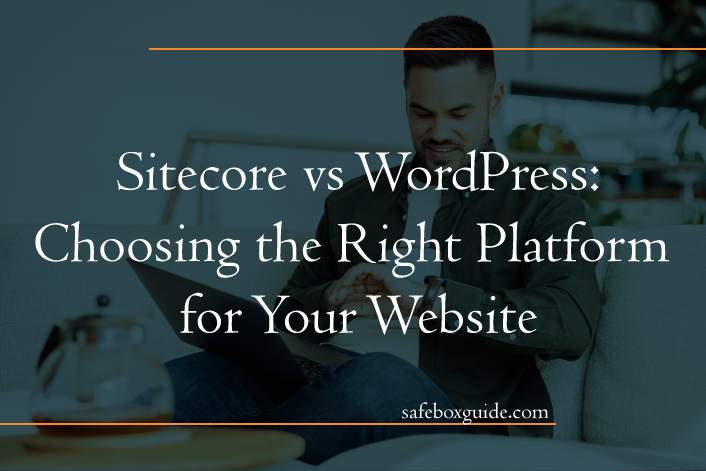When it comes to building a website, choosing the right platform is crucial for its success. Two popular options that often come up in discussions are Sitecore and WordPress. Both platforms have their strengths and weaknesses, making it essential to understand their differences and consider your specific requirements. In this article, we will compare Sitecore and WordPress to help you make an informed decision when choosing the right platform for your website.

Contents
1. Ease of Use
WordPress is known for its user-friendly interface and intuitive content management system (CMS). It offers a straightforward setup process, a wide range of themes and plugins, and a familiar interface that allows users with minimal technical knowledge to create and manage their websites efficiently. On the other hand, Sitecore is more complex and requires technical expertise to set up and manage effectively. It caters to larger enterprises and developers who are comfortable working with its advanced features and customization options.
2. Scalability and Flexibility
Sitecore is a robust enterprise-level platform designed to handle complex websites with extensive content management needs. It offers advanced personalization, marketing automation, and customer experience management features. Sitecore excels in handling large-scale websites with multiple languages, user segmentation, and sophisticated integrations. WordPress, while initially designed for blogging, has evolved into a versatile CMS that can power websites of all sizes. It provides a vast selection of plugins and themes that allow for customization and scalability to meet different website requirements.

3. Customization and Development
Sitecore offers extensive customization options and is highly flexible for developers. It provides powerful APIs, a modular architecture, and a comprehensive set of development tools. Sitecore’s development capabilities allow for deep integration with other systems and technologies, making it a preferred choice for enterprises with complex digital ecosystems. WordPress, with its extensive plugin and theme ecosystem, offers a high level of customization for non-technical users. It allows for easy modification of website functionality and appearance, making it a popular choice for small to medium-sized businesses.
4. Security and Support
Sitecore places a strong emphasis on security, which is essential for enterprise-level websites. It provides robust security features, including granular user permissions, role-based access control, and built-in data encryption. Sitecore also offers dedicated customer support, including training, documentation, and a global network of certified partners. WordPress, being an open-source platform, is often a target for hackers. However, by keeping WordPress core, themes, and plugins up to date, following security best practices, and using reliable hosting providers, you can maintain a secure WordPress website. For additional security measures on WordPress, consider using plugins like WP Force SSL to enforce HTTPS connections, and WP Login LockDown to limit login attempts and prevent brute force attacks. WordPress has an active community that provides support through forums, documentation, and third-party services.
5. Cost Considerations
WordPress is known for its affordability, as it is open-source and free to use. However, additional costs may arise from premium themes, plugins, hosting, and ongoing maintenance. Sitecore, on the other hand, is a proprietary enterprise-level platform that requires licensing fees and often involves higher development costs. The overall cost of Sitecore implementation can be significant, particularly for larger organizations with complex requirements.
Choosing between Sitecore and WordPress depends on the specific needs of your website. If you require advanced enterprise features, complex integrations, and scalability, Sitecore may be the better option. It provides a powerful framework for managing large-scale websites and delivering personalized user experiences. On the other hand, if you prioritize ease of use, flexibility, and a vibrant community, WordPress offers a user-friendly CMS with a vast ecosystem of plugins and themes to cater to different website needs. Consider factors such as budget, technical expertise, scalability requirements, and security concerns when making your decision. Ultimately, selecting the right platform will ensure the success of your website and align with your long-term goals.

